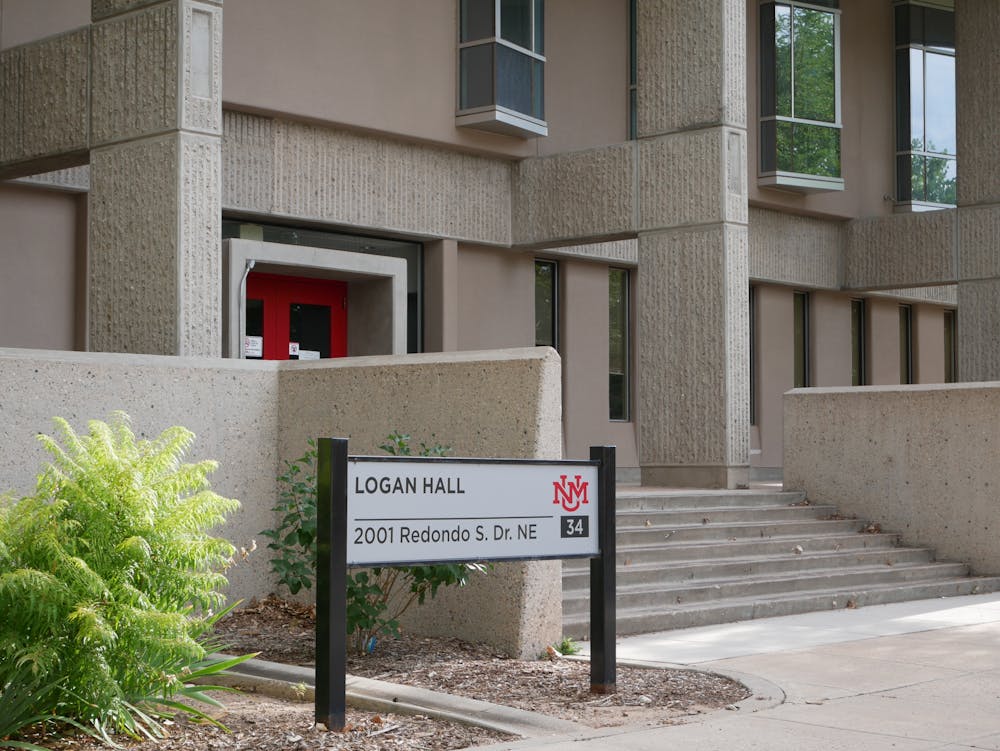On July 19, individuals from the University of New Mexico psychology department delivered a statement to UNM leadership, calling for the University to drop all charges against pro-Palestine protesters and to support student rights to activism and free speech.
The statement also highlighted the potential mental health effects of the responses by UNM leadership and police to the UNM Palestine Solidarity Encampment, dismantled by police in May.
“We are alarmed with these reported incidents of police violence against peaceful protesters, as these actions infringe on students’ civil liberties and right to peaceful protest. Police violence negatively impacts mental health and social determinants of health,” the statement reads.
On July 26, the Board of Regents acknowledged receipt of the statement via email. As of Sunday, Aug. 11, UNM leadership has not responded to the statement.
Donia Hijaz is a doctoral student in the psychology department and an author of the statement.
“As a department that's concerned with mental health and the well-being of individuals, we are concerned with what the (UNM) administration did and what the administration had the police do,” Hijaz said.
The statement was authored by five collaborators: two doctoral students, one undergraduate student, one faculty member and one alum. It is signed by 67 individuals from the psychology department, including undergraduate and graduate students, staff, faculty and alumni.
Hijaz said the idea to write it came from a previous statement released May 6 by faculty and staff from the UNM theatre and dance department, in which they called for charges against student protesters to be dropped and for an end to police harassment and raids on students at the UNM Palestine Solidarity Encampment.
According to the psychology department members’ statement, the majority of arrests that occurred were of marginalized individuals, several of whom reported job loss following their arrests.
“The police violence that occurred on our campus perpetuates oppression and historical trauma of vulnerable communities,” the statement reads.
The statement also highlights the issue of police inflicting physical harm to campus protesters, including injuries at UNM that it says resulted in nerve damage and concussions.
Rakin Faruk, a recent alum and author of the statement, said she spent time with a protester who suffered a concussion after being arrested during the April occupation of the Student Union Building.
Get content from The Daily Lobo delivered to your inbox
“I remember when the comrade that I'm very close to was released, they were suffering from a concussion. This concussion affected them for the entire month afterward … I saw a lot of derealization, a lot of dissociation,” Faruk said.
Hijaz said a more considerate mental health response from the University would have required more direct communication and dialogue from UNM leadership.
“We just wanted some type of communication … for minority communities, we don't feel like our voices are ever heard or cared about, and so if the administration would have just shown that ‘We care about your voices, let's have a conversation,’ that would have been huge,” Hijaz said.
Hijaz recalled how President Garnett Stokes’ campus-wide emails related to the Palestine Solidarity Encampment never directly mentioned Palestine.
“As a Palestinian woman, that form of communication, not even saying Palestine, is so dehumanizing … the fact that she wouldn't even use that word contributes to more historical trauma … it was even more hurtful seeing the institution that we're a part of perpetuating that erasure of Palestinian identity,” Hijaz said.
The effects of historical trauma can contribute to increased anxiety, depression and PTSD for some individuals, according to Hijaz.
Historical trauma may be experienced by specific cultural, racial or ethnic groups, according to the Administration for Children and Families. It happens over generations and is related to major events involving oppression of particular groups, such as colonization of Indigenous peoples.
“I felt safe (at the encampment), I'm so grateful for what it provided for all of us and I definitely feel like it helped (our) mental health. It was a safe space, and it allowed our voices to be heard,” Hijaz said.
The statement also supports the demands made by the encampment, including University divestment from Israel and calling for an immediate ceasefire in Gaza.
“As Israel continues to commit genocide in Gaza, with a death count of over 36,000 Palestinian civilians and horrifying images of massacre after massacre continuing to emerge from Gaza, it is crucial that we stand with students, faculty, staff and alumni at UNM and across the country who are putting their lives and futures on the line to fight for the rights and dignity of Palestinians,” the statement reads.
Leila Chapa is a freelance reporter for the Daily Lobo. She can be reached at news@dailylobo.com or on X @lchapa06
Paloma Chapa is the multimedia editor for the Daily Lobo. She can be reached at multimedia@dailylobo.com or on X @paloma_chapa88
Leila Chapa is the social media editor for the Daily Lobo. She can be reached at socialmedia@dailylobo.com or on X @lchapa06
Paloma Chapa is the multimedia editor for the Daily Lobo. She can be reached at multimedia@dailylobo.com or on Twitter @paloma_chapa88






